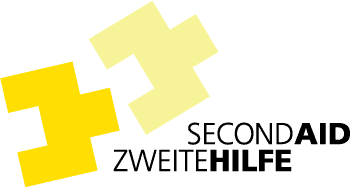Dear Hemp Report Readers,
Here is an excellent opportunity to help with the tsunami relief effort. You money will go directly to people in need to help them self-sufficient once again. You can make a difference!
Please make a donation to Second Aid today.
Thanks,
Arthur Hanks, Tom Murphy, and Jason Freeman
The Hemp Report

Dear Friends and Colleagues in the Hemp Industry:
Some of you know that I've worked for several years in Sri Lanka on yet another versatile natural resource, coconut fiber (coir). First as consultant to a USAID project, I'm now also developing new applications and markets for coir with my friend Bernd Frank at BaFa, the largest German processor of hemp. After the tsunami struck we thought that with our network of personal and business friends in Sri Lanka we should provide more direct help to some of the people worst hit - small micro enterprises in coastal Sri Lanka. With friends in the U.S., Sri Lanka and Germany we started the project SECOND
AID (in German: Zweite Hilfe) - and we're asking for your support.
Many small entrepreneurs have lost not only family members and homes but also their livelihoods, i.e. equipment and supplies, and have no money or access to credit to replace them. These businesses - fishing, repair shops, craftspeople, vendors, canteens - give vital jobs in coastal and rural areas with a high poverty rate. Most of the displaced now live in refugee camps with little to do. Aid organizations have prevented large-scale starvation and disease and are providing shelter. Yet, our local colleagues confirm that there has been minimal support to help small businesses get back on their feet.
Virtually all of us in the hemp industry are "small businesses" and can identify or sympathize with their plight. Thus, SECOND
AID's concept may appeal to you: with funds raised in the U.S. and Germany, we provide businesses with in-kind donations of specified, needed smaller items or with revolving, interest-free loans for larger equipment. We will also give financial and technical aid to select communal projects. To identify needs, purchase and distribute goods, and administer loans we work with trusted individuals and local organizations.
In his usual generosity, David Bronner has offered to match contributions from members of the hemp industry - and the Dr. Bronner's Family Foundation has already financed our first project in a camp near Colombo. There, we just provided 25 family businesses with the equipment necessary to resume their work, at a cost of $2,020. Nutiva has pledged $2,500 to support recovery of agricultural land, which has suffered in some areas. Our initial goal is to raise $30,000 for direct aid. With typical needs of businesses in the $100 to $500 range, this will help many families to start back up and rebuild their lives. During this initial phase, all project members are donating their time and expenses to the project, thus there are no overhead costs. Please download SECOND
AID's brochure for additional information on the project. And if you can't contribute personally but want to support our work, please spread the word and pass on the brochure.
Thanks much for your support - and please give a call or send e-mail with questions or suggestions.
Best regards,
Gero Leson
PS. Donations will be tax deductible, as our friends at
Fiber Futures have agreed to let us use their 501(c)(3) status. For details, please see our
brochure. Checks should be made out to "Fiber Futures" and "Second Aid" should be written on the memo line. Please mail checks to the address in the
Second Aid Brochure.
About SECONDAID
Second Aid - Zweite Hilfe is a non-profit aid organization founded through a private initiative in the U.S., Sri Lanka and Germany. We provide unbureaucratic financial and technical support to tsunami victims in Sri Lanka who are not being reached by either government or larger aid organizations. These are cottage industries, run by families who have lost their tools and supplies, and who have neither funds nor access to credit to replace them. Our direct aid enables mechanics, sewing shops, grocers, canteens, and fishermen to work and resume earning their livelihood - without long waits and high overhead costs.

![]()
